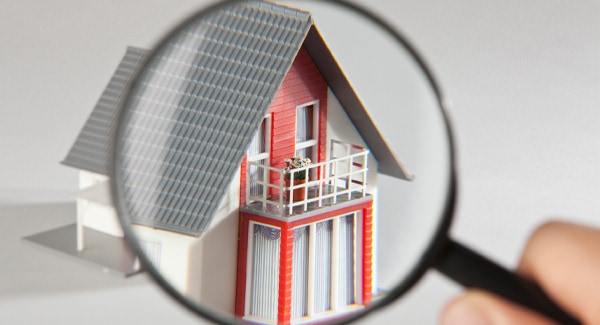
Last Updated on June 28, 2023
If a mortgage application is in your future, it’s wise to learn the basics about building your credit—including the biggest myths out there about how to do it.
Sorting out the true from the false will make you a stronger, more confident home buyer when the time comes to fill out those mortgage applications. Here are the ten biggest myths about how first-time home buyers can build their credit.
Myth #1: Your credit report and your credit score are the same thing
Your credit score and your credit report are actually two different things, and they’re both important to know.
A credit report is a factual, regulated document listing your credit history, including your credit accounts, payment history, and the current status of all your accounts.
Credit reports are compiled by the three major reporting companies: Equifax, Experian, and TransUnion. Your credit score is a three-digit number calculated using the information in your credit report. Lenders look at your credit score to determine your eligibility for loans, including mortgages.
Myth #2: It costs money and lowers your credit score to check your own credit report
Having access to your credit history is the first step to successfully building or improving your credit so you can get the best terms on your first mortgage.
The good news is that you do not have to pay to access your credit, and through April 2022, the three major credit reporting agencies are allowing consumers to access free credit reports as often as once a week at annualcreditreport.com.
The other good news is that you are not harming your credit score by checking your credit report. It’s considered a “soft” inquiry—the kind of check that doesn’t put a ding on your score.
Myth #3: The more credit you use, the better your credit rating
While you do need to use credit to build credit, it’s important to use it the right way—and (sorry to report) more is not better in this case.
Charging a lot of purchases and keeping a high balance on your accounts relative to the limit will negatively affect several factors that lenders use to determine your mortgage eligibility.
For one, it will hurt your debt-to-income ratio, or how much of your monthly income is needed to pay your debts, including what you owe on your credit cards.
Keeping high balances on your credit cards can also put a ding on your credit utilization ratio, or the percentage of your spending limit you’re using on each credit account. Do your best to pay off your balance each month, or if you have to carry a balance, keep it below 10% of your credit limit for each account.
Myth #4: Once you pay off a credit card, you should close it
This myth is understandable, but still important to debunk. As much as we think it would look good to close an account we don’t use, we could actually be hurting our credit history by doing this.
Here’s why: the longer you have a credit account, the more credit history you have. If you’re young, you may not have a long credit history. If you close the first credit card you ever got, you’re actually shortening your credit history—not a good idea since the length of your credit history can determine up to 15% of your credit score.
We recommend keeping your credit accounts open, and using them every once in awhile, as long as you make sure to pay them off completely each month to avoid paying interest.
Myth #5: Paying late from time to time is no big deal
Lenders will likely look at a late or missed payment within the past 12 months as cause for concern.
On the flip side, showing lenders that you’re able to keep up with your payments consistently is a factor that can positively affect up to 35% of your FICO score, so it’s smart to prioritize paying on time, every time.
Myth #6: You have to pay off all debts to build your credit
The truth is, having student debt, credit card debt, or a car loan does not prevent you from qualifying for a mortgage.
The way to manage having debt and also being a viable candidate for a mortgage is to consider your debt-to-income ratio. Lenders look at how much of your monthly income is needed to keep up with your various credit or loan payments.
Ideally, no more than one-third of what you earn each month should be required to go toward these types of payments.
Myth #7: You need to pay a credit repair company to build your credit
Credit repair companies that require a fee to correct or “improve” your credit report should be vetted very carefully, because they may be predatory.
The fact is, there’s nothing these services can do that you can’t do yourself for free. You can dispute errors on your credit for free at annualcreditreport.com, a federally approved site.
If you do want to retain a credit counseling service, learn how to vet the service at the Federal Trade Commission Consumer Information site.
Myth #8: It doesn’t matter which credit card you pay off first
Paying off credit balances improves your debt-to-income ratio, which is a plus when lenders consider you for a mortgage.
However, you can make an even bigger impact by figuring out the best order in which to pay off your credit cards. First, find what’s called the “credit utilization ratio” of each of your credit accounts.
To do this, you divide the balance on the card by the credit limit on that same card, and multiply the result by 100. For example, a credit card with a $3,000 balance and a $5,000 limit has a credit utilization ratio of 60% (3,000 divided by 5,000 is 0.6; 0.6 multiplied by 100 is 60.) Pay off your balances in order of the highest to lowest credit utilization ratios.
Myth #9: Carrying a small balance is better than paying in full each month
Not only is this a myth; paying your balance in full each month helps your bottom line by preventing interest payments.
Take what you’re saving by not paying interest, and put it toward a down payment. Voila—you’re in a better position to become a homeowner with a mortgage that works for you in the long term.
Myth #10: It’s OK to make large cash purchases as long as you don’t use credit
It’s true that large cash purchases don’t show up on your credit report, but that report isn’t the only thing mortgage lenders look at to determine your eligibility.
They also look at your savings, and putting major dings in a savings account when it makes more sense to be stocking up for a down payment is not a good look. It’s best to avoid large purchases, whether you’re using plastic or cash, while you’re getting ready to shop around for a mortgage.
Keep reading:
Ten tips to maintain a good credit score



